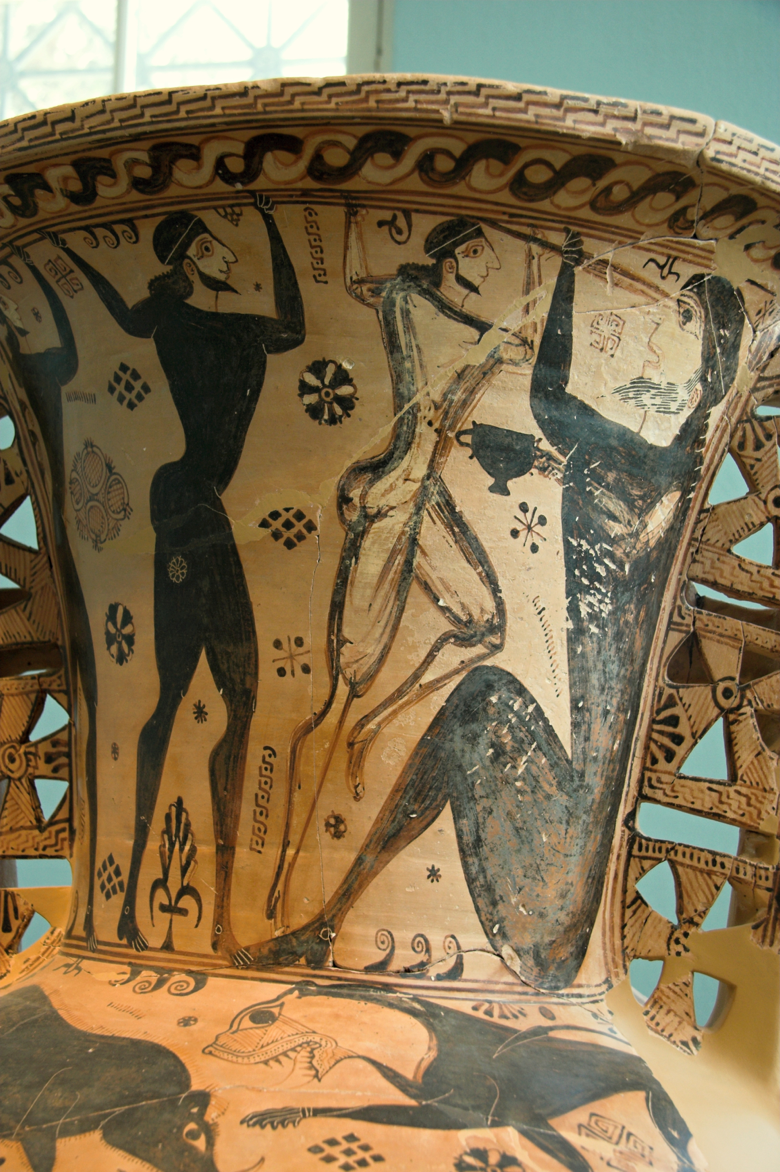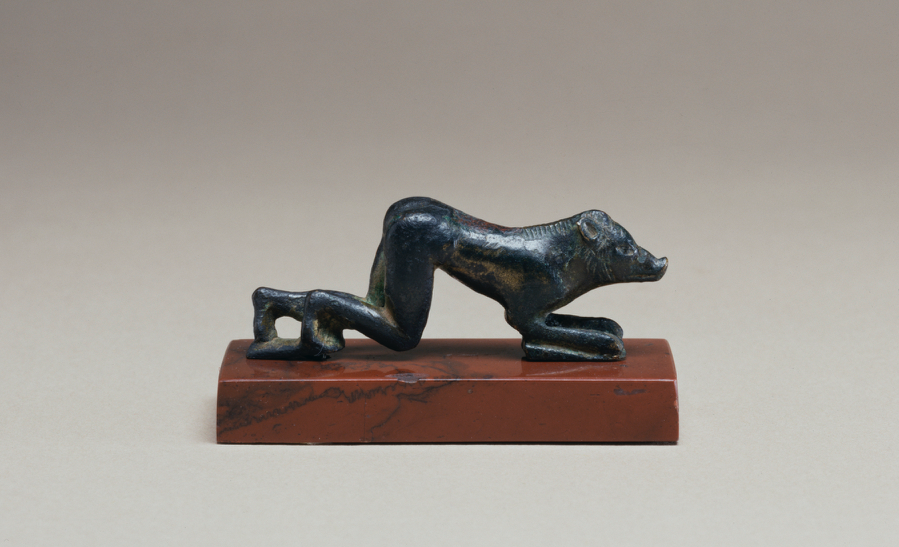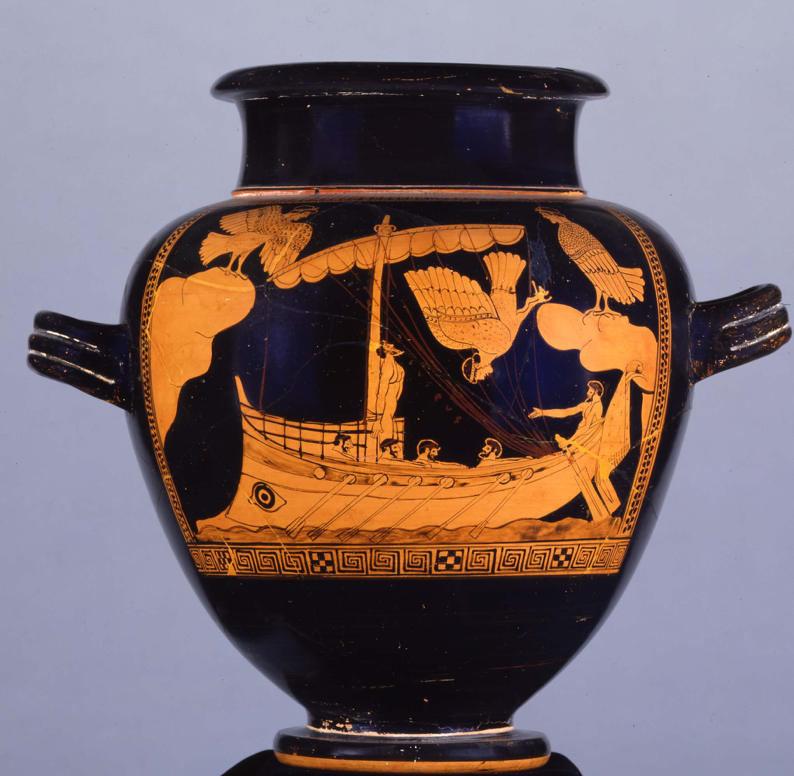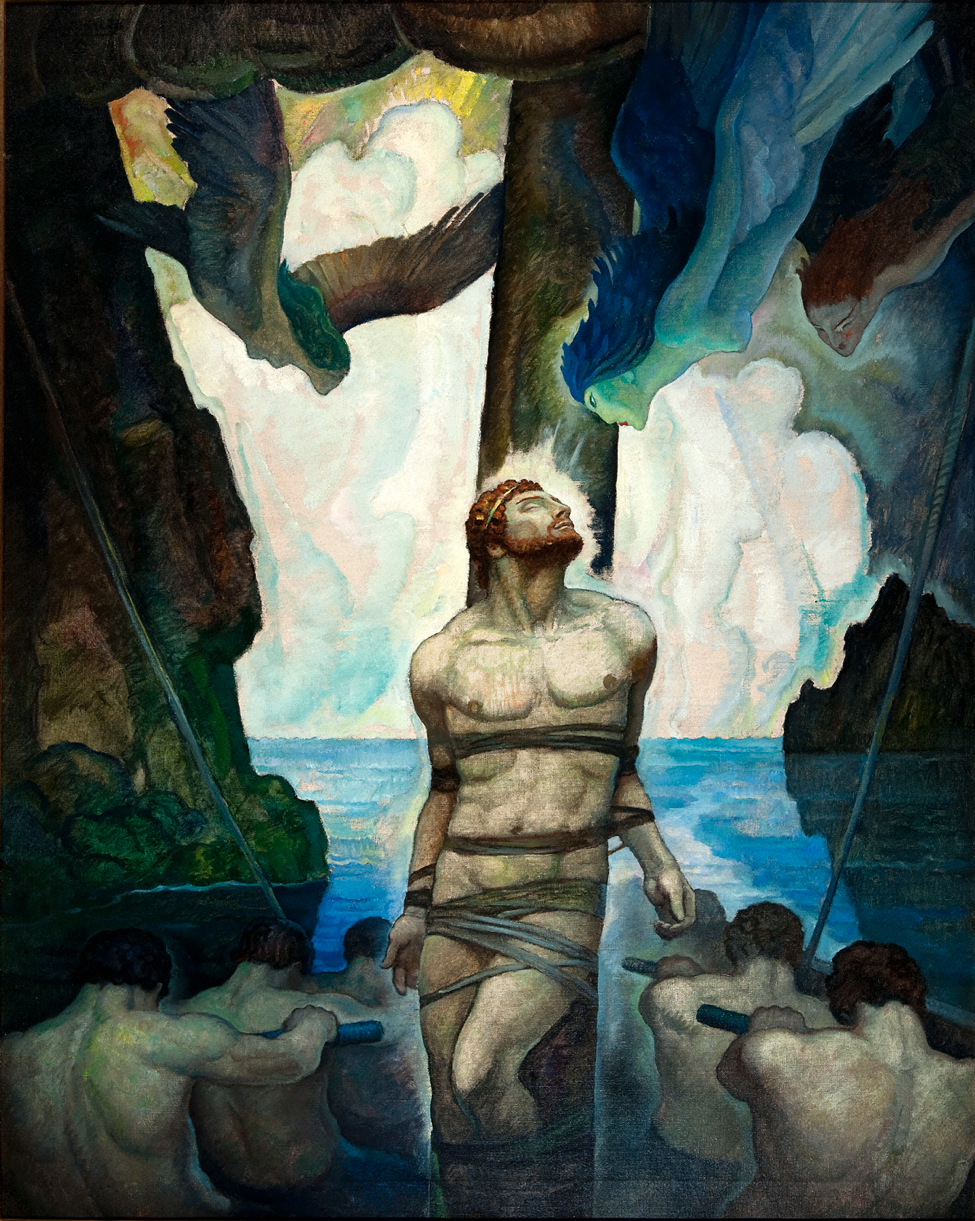
The Odyssey tells the story of the Greek hero Odysseus’ return home from the Trojan War. Although the Odyssey focuses on Odysseus’ story, it also tells about the returns of four other heroes: Nestor, Agamemnon, Menelaus, and the Lesser Ajax. These stories are told piecemeal and in flashbacks, so they are a little more difficult to follow. Furthermore, there are also a few events that happened between the end of the Iliad and the beginning of The Odyssey, that are helpful to know.

The Death of Achilles
The first of these events is the death of Achilles, which came at the hands of Paris with the help of Apollo. The Greeks were fighting near the gates of Troy and Paris shot at Achilles with his bow, which Apollo guided to Achilles’ one vulnerable spot, his ankle. This was the only vulnerable spot on Achilles’ body because his mother tried to make him immortal when he was a baby by dipping him in the River Styx. Since she held him by the ankle, the waters of the Styx did not touch that part of him, so he was mortal and vulnerable in that spot.
The Suicide of Ajax
After Achilles’ death, it was decided that his armor should be given to the second greatest Greek warrior after Achilles…. [In] Book 18 of The Iliad, Achilles had immortal armor, which had been crafted for him by the god, Hephaestus, to make up for the armor he had lost when Patroclus had worn it into battle (and Hector had taken it after he killed Patroclus). Now that Achilles, the greatest of the Achaeans, was dead, it was agreed that his immortal armor should go to the second greatest warrior. Everyone knew that the second greatest warrior was the Greater Ajax, the son of Telamon; he was huge, he was brave, and he was selfless; he spent all his time protecting the other Achaeans. But Odysseus used his amazing speaking ability to convince Agamemnon and Menelaus (who were judging the contest) that his cleverness made him more valuable than Ajax (who was not known for his wits) and that he, Odysseus, was in fact the second best Greek warrior. As a result, Odysseus was awarded Achilles’ armor, even though everyone knew in their hearts that Ajax really deserved it. Ajax was so mortified by being passed over for an honor that he felt was rightfully his, that he killed himself in shame…. [In] The Odyssey, Odysseus later came to deeply regret his “win”.

The Bow of Heracles and the Palladium
Meanwhile, the Trojan War raged on, despite the deaths of both Hector and Achilles. The Greeks learned from Helenus, a son of Priam whom they had captured, that they needed to complete two tasks before they could capture Troy. First of all, they needed Heracles’ bow, and second, they needed to capture the Palladium, a wooden statue of Athena, which was kept in Athena’s temple in Troy. The Greeks first set out to acquire Heracles’ bow, which was difficult because Heracles had given it to his friend, Philoctetes, before he died. Many years earlier, at the beginning of the Trojan War, the Greeks had abandoned him on a desert island, so now he hated the Greeks and did not want to give them Heracles’ bow. But eventually, with the help of Achilles’ son, Neoptolemus, they were able to convince him to give them Heracles’ bow. The entire story, including the reason why the Greeks abandoned Philoctetes in the first place, is told in Sophocles’ play, Philoctetes.
Now the Greeks needed to somehow acquire the Palladium, since Helenus had told them that as long as the Palladium was inside Athena’s temple, the city could not fall. Odysseus and Diomedes snuck into the city in disguise and stole the Palladium, taking it with them to the Greek camp….
The Sack of Troy and the Returns
The Greeks were savage in their sack of the city and their actions had lasting consequences on their journeys home. The Lesser Ajax (the son of Oïleus, called “Lesser” to distinguish him from the more famous warrior named Ajax) raped Cassandra in Athena’s temple. As you can imagine, Athena was furious, and she found a way to punish him so that he did not survive [see Athena]. Neoptolemus killed Priam at the altar of Zeus but, when he arrived home, he was killed by Orestes in a quarrel over Hermione, the daughter of Helen and Menelaus. Menelaus had promised Hermione to Neoptolemus but then later gave her to his nephew, Orestes. Agamemnon arrived home quickly and without incident, but as soon as he arrived he was killed at a banquet by his wife’s lover, Aegisthus. Menelaus was blown off course to Egypt, and he spent seven years in Egypt before finally arriving home to Sparta. Odysseus was blown around the entire Mediterranean Sea and was not able to return home until ten years after the Trojan War was over (which is the main plotline of The Odyssey). Only one important Greek warrior made it home quickly with no negative consequences: Nestor….
Plot Summary
Odysseus spent 10 years fighting at Troy, and another 10 years getting home. During this time, none of his family knew what had happened to him, and he lost all his ships, all his men, and the spoils from Troy. After ten years, or in the tenth year, he was set down in his own country, alone and secretly, though with a new set of possessions, by the Phaeacians of Scheria, who were the last peoples he visited on his wanderings.
When he took ship for Troy, Odysseus left behind his wife, Penelope, and his infant son, Telemachus. A few years before his return, the young bachelors of Odysseus’ kingdom, Ithaca and surrounding islands, began paying court to Penelope. She was accomplished and clever, still beautiful, an heiress and presumably a widow; but she clung to the hope that Odysseus might come back, and held them off, without ever saying positively that she would never marry again.
The suitors made themselves at home as uninvited guests in the palace of Odysseus. Shortly before the return of Odysseus, Telemachus visited the mainland in search of news about his father. He heard from Menelaus that Odysseus was alive but detained without means of return on the island of Calypso. Telemachus returned to Ithaca. The suitors set an ambush, meaning to murder him, but he eluded them and reached Ithaca just after his father arrived.
The voyage of Telemachus, the arrival of Odysseus, and the recognition and reunion of father and son, were all supervised by Athena.
Father and son plotted the destruction of the suitors. Odysseus entered his own house unrecognized, mingled with the suitors and talked with Penelope. He and Telemachus contrived to catch them unarmed and with the help of two loyal serving men (and of course Athena) they slaughtered all 108 suitors. Penelope knew nothing of the plot; Odysseus revealed himself to her after the fighting was over. The relatives of the dead suitors attacked the heroes on the farm of Laertes, father of Odysseus, and a battle began, but it was ended by Zeus and Athena, who patched up a hasty reconciliation.


